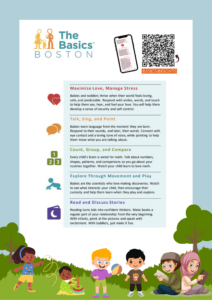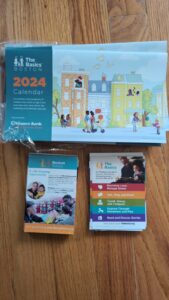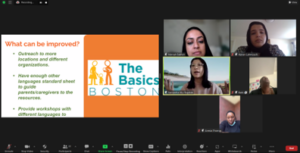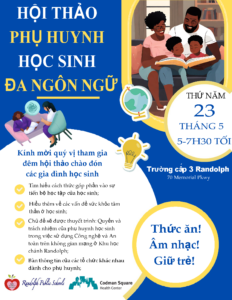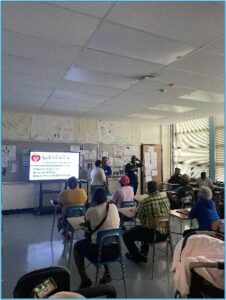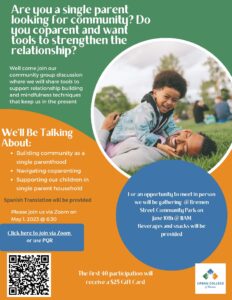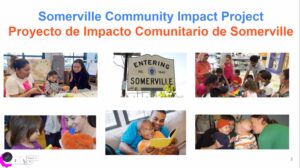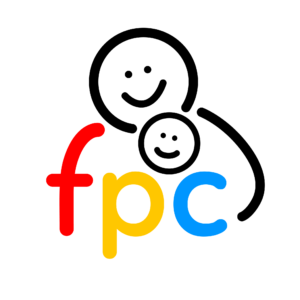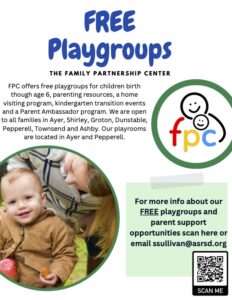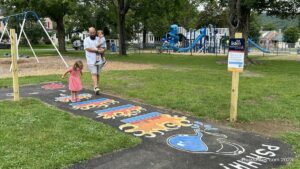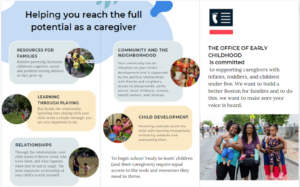What Parents Can Do
Social/Emotional
-
Play games together that help children practice taking turns, negotiating rules, etc.
-
Model how to share and cooperate with others
-
“Think out loud” to show your child how YOU think
-
Label your feelings and your child’s out loud: e.g., “You seem sad. What happened?”
Language and Communication
-
Read to your child and read aloud together: Emphasize emotion, play with voices
-
Use lots of words for day-to-day things you see, smell, hear, taste, and touch
-
Instead of just watching TV, act out a favorite TV show
-
Encourage pretend play and use your imagination together
Cognitive
-
Let your child try to do things with you, rather than always doing it for them
-
Talk aloud with your child about events or news to ask their opinion and to help memory-building
-
Create and carry out a plan with your child to model problem-solving
-
Try explaining things in a different way if your child doesn’t understand something you say
Physical
-
Make sure your child gets healthy food and enough sleep (10-12 hours suggested for ages 3-8)
-
Find local programs that include physical activities; if possible, go to a playground or park
-
Use dough and clay to help your child practice squeezing, rolling, patting, etc.
-
Model taking care of your health and body: “I have more energy when I snack on fruit than candy”
Adapted from MA Dept. of Early Education and Care
(mass.gov/edu/birth-grade-12/early-education-and-care/parent-and-family-support/)

